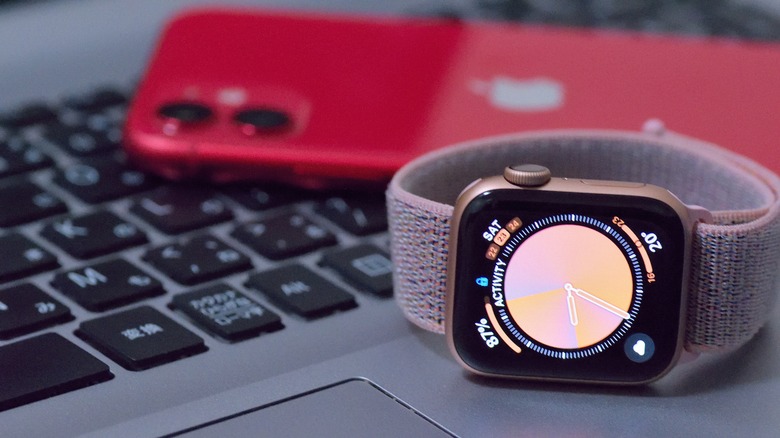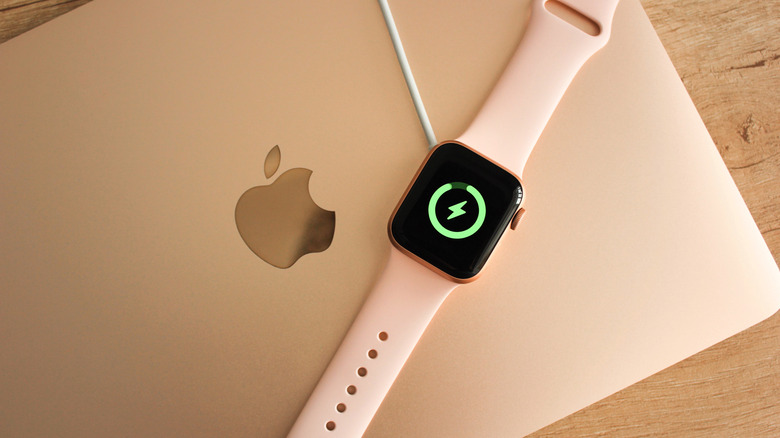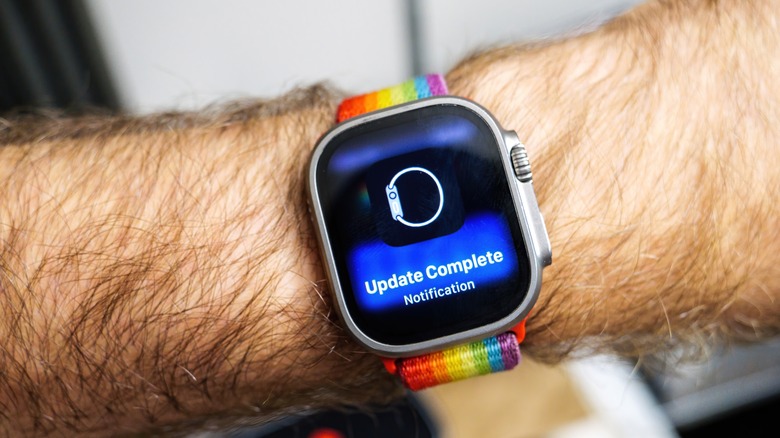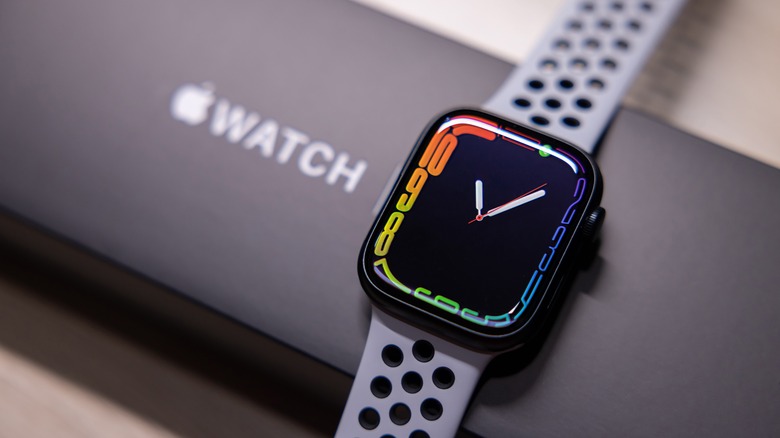How Long Does An Apple Watch Last? (And Can You Extend Its Lifespan?)
When you invest in any electronic device, you hope it will last long enough to get your money's worth. While Apple products come with tons of features, one of their main draws is their longevity. You may have to pay more upfront for the benchmark Apple Watch Series 9 than other smartwatches, but the expectation is that in return for your investment, you'll get a product that can stand the test of time. And while there's always a risk you'll end up with a lemon, for the most part, that expectation holds true.
Whether you use Apple Watch's many features to track your health stats or translate foreign languages when visiting new lands, you can generally count on it to serve you well for several years. However, just how long it lasts will depend on several things, including how well you take care of it and how long it continues to receive updates from Apple.
By some estimates, consumers can expect the typical Apple Watch to last somewhere between three and five years. However, that's not a hard-and-fast rule, and the product has no singular lifespan. Instead, a combination of factors over the span of several years will eventually cause people to stop using it.
How long will my Apple Watch's battery last?
While Apple doesn't publish statistics on how long users can expect the Apple Watch to last, there are clues that can help us estimate this — one of the biggest being its battery. If you've used a standard Apple Watch, you know you can expect to get about 18 hours of use out of a full charge, while the Apple Watch Ultra 2's battery lasts twice as long, at least at first. As with all batteries, the Apple Watch's lithium-ion battery naturally degrades over time. Every time you charge it, its capacity slowly decreases, so it won't be able to hold a charge as long.
You probably won't notice this in the beginning, but the longer you own the watch, the more noticeable it'll become as you find yourself having to charge it more frequently. How quickly this process unfolds will have a lot to do with how you use your Apple Watch. For example, if you use the Always On display or power-intensive apps, your watch's battery will drain faster, and you'll have to charge it more often, which will speed up how quickly the battery degrades.
Given the importance of the battery to the Apple Watch's lifespan, you might consider replacing yours when you notice its capacity declining. If you have AppleCare+ and your battery holds less than 80% of its original capacity, the company will replace it at no cost to you. Otherwise, you can pay for a replacement.
Does Apple's software support impact my Apple Watch's lifespan?
As nice as it would be for Apple to support all of its products with software updates indefinitely, that's not the case. For most people, the end of a software update for their Apple Watch will mark the beginning of the end of the device's lifespan. That's because these updates often introduce new features that improve performance and efficiency.
While there's nothing written in stone about how long Apple will provide updates for a given Watch, the company typically supports watches for several years. However, if you own an Apple Watch Series 4, Apple Watch Series 5, or Apple Watch SE, you won't be able to upgrade to watchOS 11, which means these watches won't receive any more software updates. So these older watches may struggle with newer apps and services as time goes on. While you can still use them, it's important to keep in mind that a lack of software updates will slowly make them obsolete.
How to extend your Apple Watch's lifespan
While you can't control things like when Apple will stop providing updates for your watch, there are some things you can do to maximize its lifespan. You should keep an eye on your Apple Watch's battery health and turn on Optimized Battery Charging to reduce strain on the battery and extend its life. You should also avoid exposing your watch to extreme temperatures, like leaving it in a hot car or directly in the sun for long periods. You should also update your watch to the latest watchOS version when available.
Doing things like turning on low-power mode and turning off the Always On display can also help. You should also take steps to reduce everyday wear and tear by using a screen protector or case to help keep your watch in the best condition and protect it from scratches and accidental drops. You should also avoid exposing it to water that exceeds its water resistance rating. While replacing your Apple Watch's battery can increase its lifespan, this option becomes less attractive once Apple stops supporting the device with software updates.



